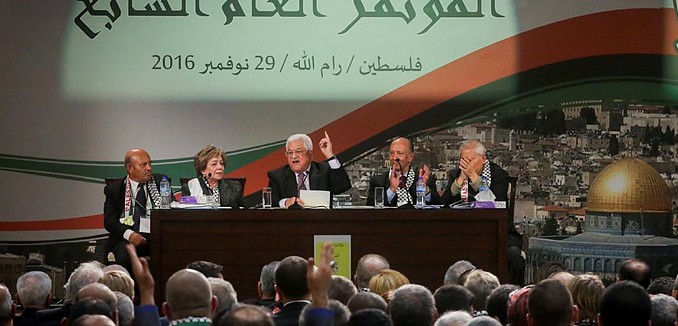An ex-Palestinian Authority minister revealed in a statement, posted on social media on Sunday, that he quit his post in October 2015 because of the high level of corruption in the Palestinian government.
Shawqi al-Issa, who served as minister of agriculture and minister of social affairs in the Palestinian unity government that took office in June 2014, did not reveal at the time of his resignation why he stepped down from his position, the Times of Israel reported.
During that period, Israel was hit by a persistent wave of stabbing, ramming, and shooting attacks by Palestinians against Israelis. In a post on Facebook, al-Issa criticized the PA over a lack of support for the attacks, accusing them of “opportunism.”
The ex-minister also explained that the reason for his resignation was the systemic corruption inside the PA. “It was not possible nor permitted to carry out any useful action to reduce corruption, or improve the services provided to our people,” he said.
Al-Issa added that “the well-qualified and non-corrupt officials continued to be removed, while those suspected of corruption had their positions strengthened.”
Attached to his post was his original letter of resignation to PA Prime Minister Rami Hamdallah.
“You (plural) know very well the volume of corruption plots that were hatched around me. I remained patient…I presented you more than once with the details of political and financial corruption. Unfortunately, nothing was done except what I was trying to do through the Anti-Corruption Commission,” al-Issa stated in the letter.
“You always said you supported what I was doing, but unfortunately, this was not reflected in the reality,” he added.
A poll published by the Palestinian Center for Policy and Survey Research in July revealed that 79 percent of Palestinians believe PA institutions are corrupt.
In We Really Need To Talk About Corruption, published in the December 2013 issue of The Tower Magazine, Jonathan Schanzer warned that the failure to address the PA’s “endemic corruption and abuse of power … will inevitably give rise to the same wave of frustration that elected Hamas, an outcome that would threaten the very peace deal Washington hopes to foster. Furthermore, the best possible way to encourage the civil society needed for a stable state, let alone a durable peace, may be better achieved from the bottom up, rather than simply hoping that corrupt leaders will make it happen from the top down against the interests of their profitable patronage networks and their own continued enrichment.”
[Photo: Flash90]




